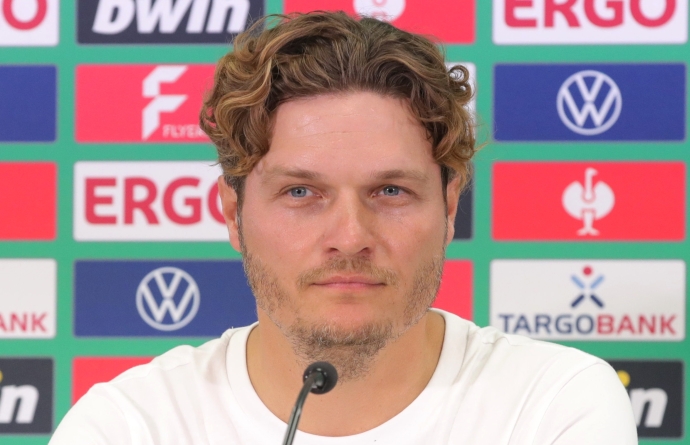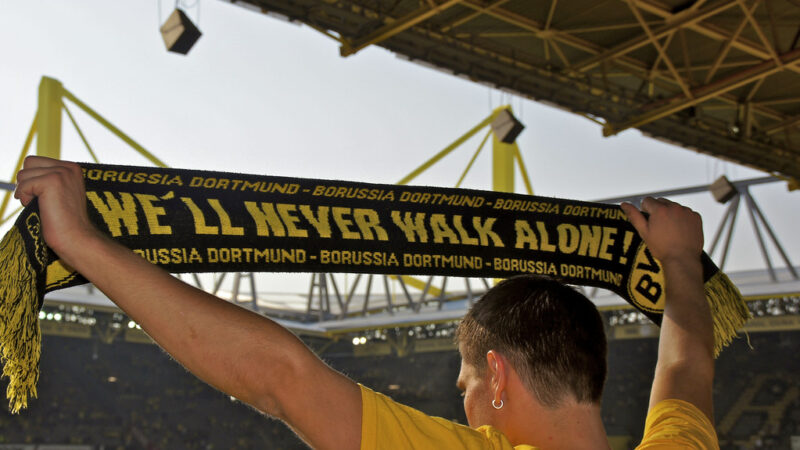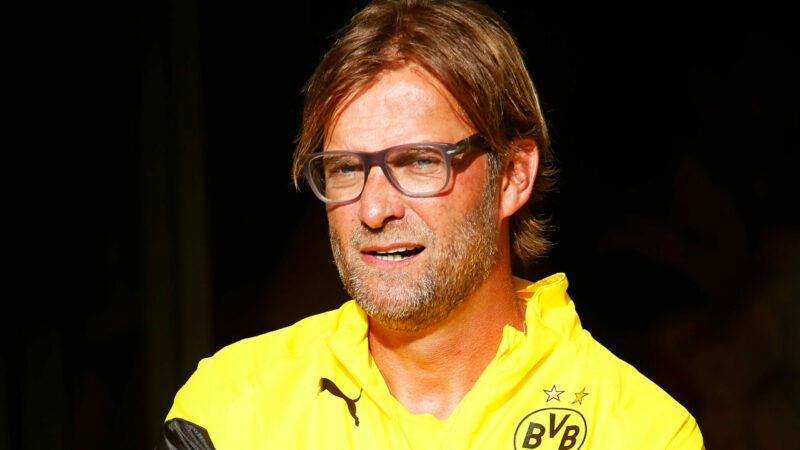Does Germany fall short when it comes to great footballing rivalries?

With Borussia Dortmund playing Schalke in the Ruhr derby yesterday, a regional feud took place between sets of fans who passionately love to hate one another. Both clubs were set up by coal and steel workers, on which the Ruhr region was defined until the late 1970s when it was hit by financial disaster.
The fact the clubs are so evenly positioned in the table adds to the intensity of the rivalry. Known as the Revierderby – ‘the derby of the area’ – it is clear geographical proximity is not the only cause of the sheer passion for the fixture since the teams are also rivals when challenging for league positions. Top four aspirations are very much alive for both of them, even though Schalke claimed the bragging rights with an impressive 2-0 win.
#Revierderby bragging rights go to:
SCHALKE! ⚒🔵⚪#S04BVB 2-0 pic.twitter.com/A46EgwUc8c
— Bundesliga English (@Bundesliga_EN) April 15, 2018
It has to be said Germany is not the most overloaded with mouth-watering clashes between bitter rivals. Apart from Dortmund versus Schalke, one fixture which is likely to be noted by football fans is Hamburg and St Pauli’s somewhat unorthodox animosity.
The two teams are nowhere near one another in terms of success. It cannot be compared to the huge rivalries of Liverpool versus Manchester United or Barcelona versus Real Madrid for example because Hamburg’s record of six national titles and five European finals is way beyond what has been achieved by St Pauli. By not playing one another over the course of the last seven years, the full extent of the rivalry cannot be witnessed by neutrals.
You only have to look at Hamburg’s Volksparkstadion capacity of 57,000 to notice they have been more established as a successful German club. The capacity is nearly double that of St Pauli’s.
Hamburg have been victorious in 59 of the 92 meetings between the two since 1924. St Pauli have won just 19, although they were 1-0 winners in the last fixture between the two sides in 2011. Ghanaian born, German international striker, Gerald Asamoah scored the only goal of the game as St Pauli claimed the bragging rights over their city rivals with a win in their backyard.
Nonetheless, the two teams may well encounter one another in the German second division next season to resume the passionate rivalry between the sets of fans. Hamburg’s 2-0 defeat to Hoffenheim on Saturday has moved them ever-closer to the drop. St Pauli have also struggled in the league below, however, registering just nine wins, as they currently sit in 16th place with a relegation battle well and truly on their hands too.
Despite struggles on the field, St Pauli’s left-wing fan base has received global recognition for their fanatical support and hipster-like attitude, often mocking their city rivals as ‘soulless’ in comparison to the noisy neighbours.
In general, though, the Bundesliga appears to fall short in terms of producing globally-recognised derbies. The Daily Telegraph for example only featured one German game (Schalke vs Dortmund) in its article entitled ‘The 20 biggest rivalries in world football ranked’. This fixture sneaked on the list in 18th place.
Perhaps Germans could point to the rivalry of 1860 Munich and Bayern and say there is a decent local rivalry there. Yet, the fact 1860 are in division 4-albeit 11 points clear at the top means they are regarded as almost insignificant by the colossal power of Bayern nowadays.
Other derbies crop up in Germany such as the Rhineland Derby between Borussia Monchengladbach and FC Koln, the Borussien Derby and the Sudderby (South) between Bayern Munich and Stuttgart, but they are never going to be compared to the likes of Liverpool/Everton, Lazio/Roma, Celtic/Rangers or Fenerbache/Galatasaray for example.
Within their list of the ‘50 biggest Derbies in the world’, FourFourTwo included just two German fixtures (Hamburg/St Pauli at 39 and Schalke/Dortmund at 9) within their extensive compilation.
While Schalke will be delighted to have defeated their rivals 2-0 and strengthen their grip on both second place and Champions League qualification, it is clear Germany is overshadowed by the likes of England, Italy and Spain when it comes to the global interest of its derby fixtures.






